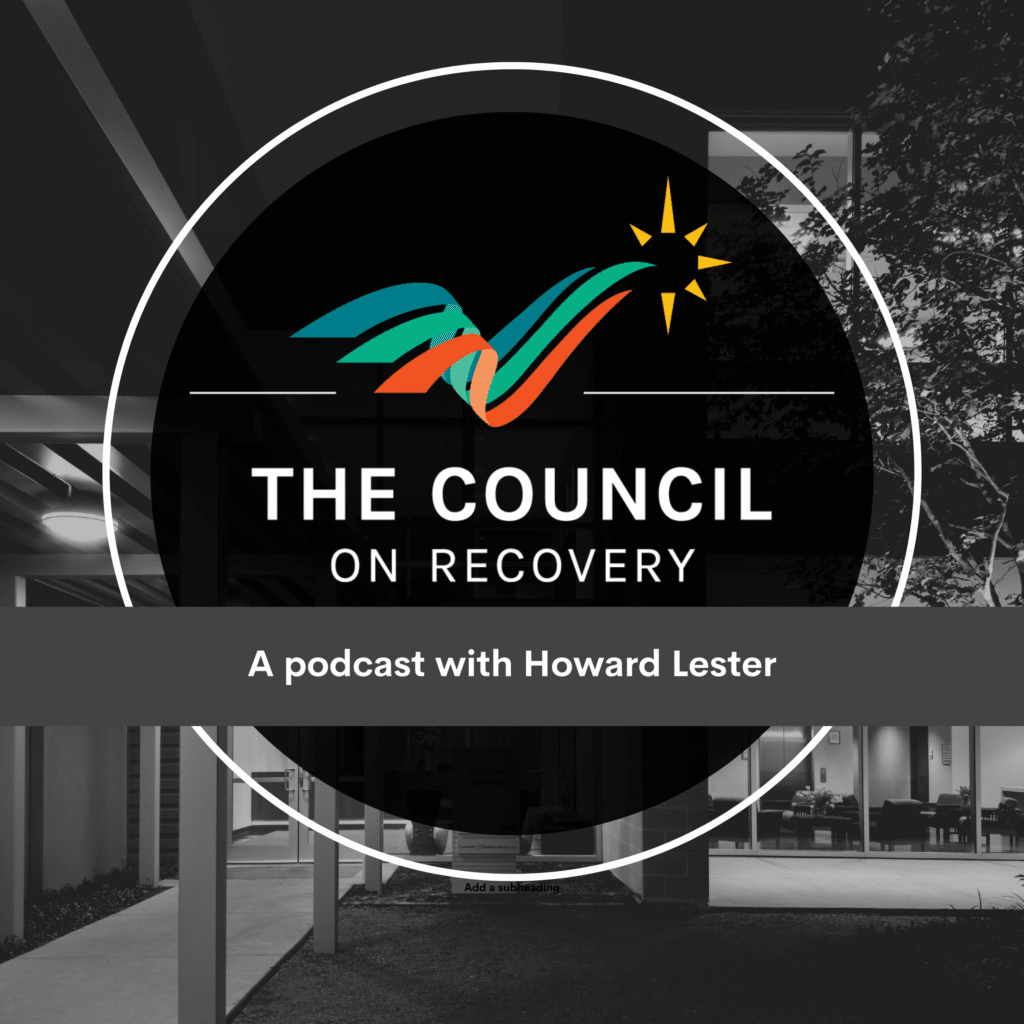
The Council on Recovery Podcast, with host Howard Lester, explores the diseases of alcoholism, drug abuse, other addictions, and co-occurring mental health disorders by looking at prevention, education, treatment, and recovery. Through deep and meaningful interviews, we cover every point of view by talking with doctors, educators, researchers, therapists, judges, policymakers, clergy, law enforcement, rehab and mental health professionals, the media, and most importantly, people in recovery. This long-needed approach brings everyone together for frank discussion of the problems and the sharing of realistic, viable solutions that inspire optimism and hope.
Episode 1 | One Father’s Nightmare: His Daughter’s Life-and-Death Struggle with Addiction
Howard interviews Bob C. who shares his extraordinary story of a father’s incredible efforts to save his daughter’s life during her 15 year odyssey with drug addiction and mental illness. At times, he thought he’d lost her. But he also realized that desperately trying to save his daughter might just kill him. With other family tragedies swirling around him at the same time, he somehow found the solutions for staying alive and helping his daughter survive. One man’s quest for the answers that parents all over are searching for.
Episode 2 | Unspoken Legacy: Claudia Black on the Destructive Impact of Trauma and Addiction within the Family
Howard’s sits down with Dr. Claudia Black, a senior fellow at Meadows Behavioral Healthcare. Claudia is a Ph.D. in Social Psychology who is internationally known and respected for her pioneering and contemporary work with family systems and addictive disorders. Claudia’s cutting-edge work was instrumental in creating the solid foundation for the entire field of codependency. Since the mid-1970s, she’s been a passionate leader in the field of addiction and has helped the world gain a greater understanding of the impact of family trauma and its connection with addiction. Claudia designs and presents training workshops and seminars to professional audiences in the field of family service, mental health, and addictive disorders. She has authored fifteen books, most notably Intimate Treason, It Will Never Happen to Me, and her latest, Unspoken Legacy. Claudia is also Clinical Architect for the Claudia Black Young Adult Center at The Meadows Treatment Center in Arizona.
Subscribe & Download Our Podcasts Today
There are many ways to download and subscribe to The Council on Recovery Podcast, including at Apple Podcasts, Android, Google Podcasts, Stitcher, or wherever you get your podcasts. For more information about how to subscribe and download, please just visit the Podcast page of our website.
